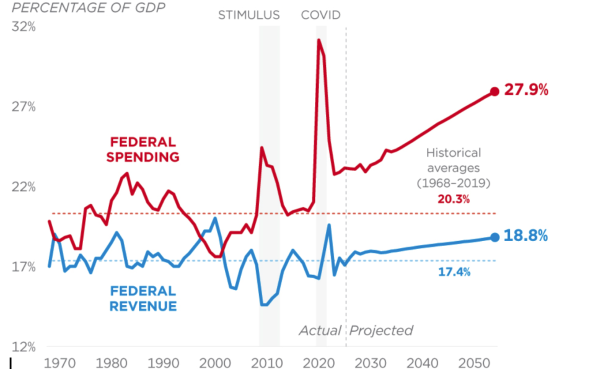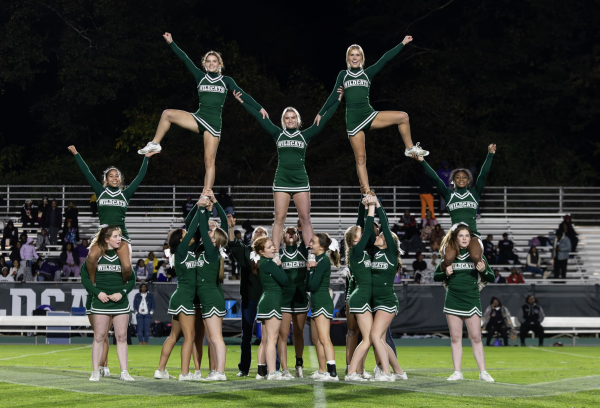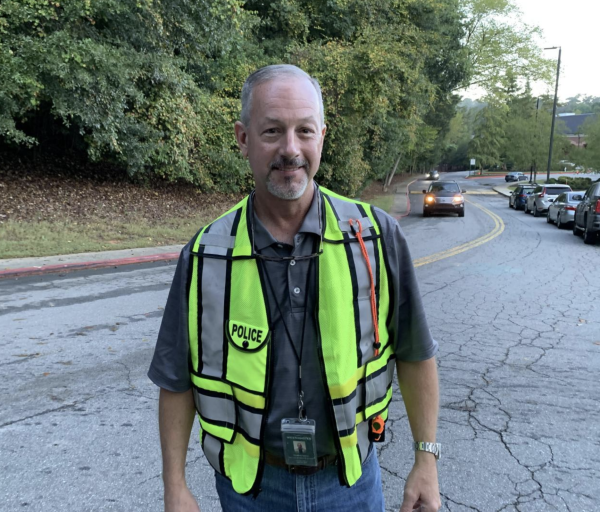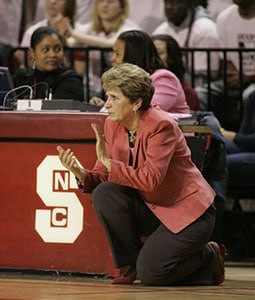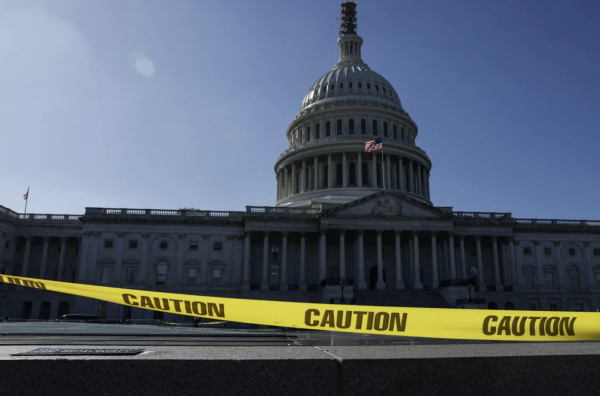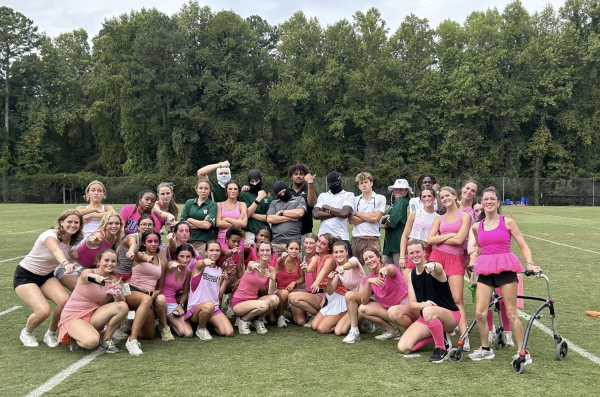Community wrestles with implications of DACA
As students walked into a Hispanic Heritage month assembly on Thursday, Sept. 28, some noticed a change in atmosphere. Instead of the usual hit songs playing from the speakers, singer Manolo Alayeto’s melodious voice welcomed entering students and faculty. Toward the middle of the assembly, Alayeto took the spotlight once more, walking up and down the aisles in McCain chapel, inviting everyone to stand up and dance. One by one, then in pairs, and then in groups, people began to stand and celebrate.
Though the musical performances may most easily capture the attention, the main part of the assembly featured a presentation about Hispanic Heritage month, which lasts every year from Sept. 15 to Oct. 15. Lead by seniors Yessica Valesquez and Damaris Zamudio and advised by director of Hispanic student development Daniel Searl, college counselor Juan Acosta, and Spanish teacher Estefania Olid, Westminster’s Hispanic and Latino affinity group Café con Leche organized the annual assembly. While Hispanic Heritage month is an occasion for celebration, the month also provides a platform for recognizing Hispanic and Latino contributions and history.
“It’s fun to do song and dance, and it’s important to recognize the traditional culture and some of the modern influences with some songs and artists, but you also want to make sure that all the Upper School students are hearing about those more deeply ingrained contributions of Latinos to the United States over the years that maybe haven’t been highlighted for a long time,” said Searl.
Hispanic Heritage month acknowledges the contributions of those like Sonia Sotomayor, the first Hispanic justice of the Supreme Court of the United States, and gives many Hispanics and Latinos the chance to understand their own personal history. Junior Regina Morales explains that by understanding history, people can recognize and appreciate the efforts of those from previous generations, from pioneers to family members.
“I think, in a way, your history is super important so that you don’t take everything for granted,” said Morales. “All of us got to Westminster from the hard work of people before us, so I think it’s important to know how to appreciate where you are by knowing where you come from.”
Hispanic Heritage month can also give an opportunity to draw attention to modern-day issues still affecting Hispanics and Latinos. Every Hispanic Heritage month assembly, the members of Café con Leche reiterate the difference between the terms Hispanic and Latino, which refer to those from Spanish-speaking countries and those from Latin America, respectively. Nevertheless, members this year faced new challenges in light of tumultuous current events affecting Hispanics and Latinos.
“This year, I guess what was most conflicting for us was that there were a lot more political issues to deal with and discuss that were going on,” said Café con Leche co-leader, senior Yessica Valesquez.
Consequently, a part of the presentation dealt with various present-day topics significant to Hispanic and Latino communities in America and other countries. Café con Leche directed and displayed “Roles Reversed,” a video inspired by Latino digital media company mitú’s Snapchat story. Starring Westminster students, “Roles Reversed” illustrates hypothetical scenarios in a world where Hispanics and Latinos make the same assumptions about white people that are often made about Hispanics and Latinos. Morales explained that the scenarios draw from the students’ experiences and focus on misconceptions regarding country of origin, language, names, appearance, and food.
“I’ve gotten the, ‘Are you here illegally?’ and I’m like, ‘No, I’m a U.S. citizen,’” said Morales. “A lot of the comments that were in the video are the same ones that I get today, still, unfortunately.”
Students like senior Alex Palacios, who is of Colombian ancestry, also deal with other types of misconceptions. Although the terms Hispanic and Latino encompass a wide range of countries and cultures, many tend to forget or overlook this diversity within the community. As a result, some misidentify Hispanics from different countries as Mexican.
“It’s a part of you that you don’t want people to get wrong,” said Palacios.
There are many idiosyncracies between Spanish-speaking countries as well.
“You may be talking with another Spanish-speaking person, and you’ll say something weird, and they’ll be like, ‘What are you saying? I have no idea what that is,’ because it’s only something you say in Colombia,” said Palacios.
Additionally, the presentation included information about the 7.1-magnitude and 8.1-magnitude earthquakes that hit Mexico and the devastation left behind by Hurricane Maria in Puerto Rico on Sept. 20.
At the end of the assembly, Upper School dean Ralph Geeza made an announcement for an extended discussion about DACA, or Deferred Action for Childhood Arrivals, in Student Voice, a space for students to discuss and learn about issues important to them. Originally, the members of Café con Leche planned to incorporate a section about DACA into their presentation as well, but had to make last-minute arrangements.
“The reason why it was such a big deal was that at the moment, we were kind of in shock because we’ve been planning this for a long time in our schedule and rehearsed it and everything,” said Morales. “We were excited to do that because this is important to us and the people we know. So, to be cut off and not be given the small little time to talk about it was upsetting.”
Geeza expressed regret over what was perceived to be a lack of support.
“This was the result of miscommunication between several parties, and was addressed with the involved students over the next couple of days,” said Geeza. “Overall, this made the administration more impressed with how caring and thoughtful our students are to make a change in the community.”
DACA refers to the program that allows undocumented children under 16 that were brought to the United States, or “dreamers,” to remain in the country and avoid deportation.
These children are required to be students or honorably discharged veterans from the U.S. Coast Guard or Armed Forces, and must not have been convicted of any felonies.
Those under DACA must request a renewal before it expires. However, on Sept. 5, U.S. Homeland Security announced that the program will end and will no longer accept renewal requests.
For many Hispanics and Latinos who are under DACA or who have people close to them under the program, the new announcement introduces the possibility of deportation amd separation.
“This decision has created a lot of fear, especially in my community, because I live in a specific place that a bunch of Hispanics and Latinos live in,” said junior Valeria Serna. “I know some of my friends are dreamers, and it’s just scary to think that they’re going to get deported if they don’t renew their DACA.”
In addition, Serna points out that many of these children have grown up in the U.S. and fear deportation to an unfamiliar country.
Furthermore, she explains how students on DACA would have to give up the education and the future career they worked towards for many years.
Due to the immense and widespread impact the program has on the country, Geeza decided to host the series of discussions on DACA, the first one on Sept. 19, the second one on Oct. 17.
According to him, though students are often preoccupied with schoolwork and extracurricular activities and sports, Westminster should take a more proactive approach towards discussion of serious topics. These discussions better prepare students for dealing with heavy and often controversial topics in the future and open up chances for better mutual understanding.
“We are all one community, but there are different pockets that contribute to our community,” said Geeza. “So, if we understand more about that community, we will grow to be a better and stronger community.”
For him, these discussions are the Westminster administration’s first steps toward approaching students directly and including them in the conversation.
Therefore, Alayeto’s invitation to Westminster to stand up, dance, participate, and celebrate Hispanic heritage extends to the students and faculty to participate actively in a larger conversation about the issues that affect Hispanics, Latinos, and our entire campus community. Part of that conversation would naturally flow into Student Voice. Searl wishes that in the future, these conversations will be integrated into students’ everyday.
“Hopefully soon, you don’t need a Hispanic Heritage month,” said Searl. “You don’t need a Black History month. You don’t need special occasions to recognize contributions of the variety of people, the diverse people who’ve contributed to the United States over the years.”


